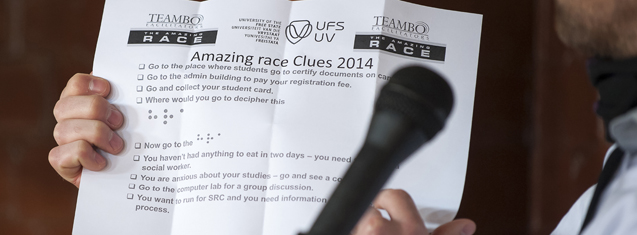Latest News Archive
Please select Category, Year, and then Month to display items
02 January 2025
|
Story Gerda-Marie van Rooyen
|
Photo Supplied
 Leading the research in South Africa is Prof Linus Franke from the Department of Soil, Crop and Climate Sciences.
Leading the research in South Africa is Prof Linus Franke from the Department of Soil, Crop and Climate Sciences.
Scientists are actively pursuing the successful breeding of diploid hybrid potatoes from inbred lines. This is expected to revolutionise potato breeding as it holds the key to rapid genetic progress. It will introduce new varieties for commercialisation through seed. Currently, existing potato variants have a gene that renders self-pollinated seeds infertile.
Prof Linus Franke, an academic in the Department of Soil, Crop and Climate Sciences at the UFS, is leading the research in South Africa. “This technology allows the production of genetically uniform potato seed that is easy to transport and largely disease-free.” He says this differs from conventional breeding whereby only vegetative propagation is possible due to tetraploid varieties in potatoes. It also risks carrying pests and diseases from one generation to the next – leading to the accumulation of pests and diseases with each round of multiplication.
Seed innovation
Prof Franke explains that Solynta BV, a seed company based in the Netherlands that produces potato varieties that can be grown from seed, has included South Africa in their research efforts because it is one of Africa’s largest producers and exporters. Through his academic relationship with Wageningen University and Research, a Dutch institution renowned for its agricultural endeavours and food production, the UFS became involved in researching hybrid potatoes grown from seed.
Diploid seeds containing two sets of chromosomes allow easier gene manipulation to increase predictability and speedier genetic progress. The breeding approach enables the incorporation of tolerance to pests, diseases, abiotic stresses (cold, heat, drought) and other desired genetic traits.
Although Prof Franke is optimistic about this research, he is not blind to disadvantages. “Potato seeds are tiny and have little energy reserves, making it harder to grow potatoes from seed than from tubers.” He says potatoes from seed will take longer to cultivate than tubers, as farmers need to grow plantlets from seeds first, adding six weeks to the growing period. “It is possible that commercial farmers can grow potatoes directly from seed. Alternatively, perhaps more likely, specialised growers will produce tubers of potatoes from seed; these tubers are then sold as seed tubers to other potato farmers, who then continue their normal practices of producing potatoes for the market from tubers.”
Financial benefits
Prof Franke says farmers have reason to get excited. “Seed potatoes will reduce input costs, as varieties with enhanced tolerance to pests and diseases require less pesticides. Planting one hectare of potatoes requires three to four tonnes of potato tubers, but only one 25 g packet of potato seeds.” Since potatoes are a more valuable commodity than maize, this technology might also increase farmers’ income potential.
Staff experience running in the shoes of students
2014-07-29

Photo: Sonia Small
From having to upload money on a card and buying lunch at Thakaneng Bridge to naming the SRC members, some UFS staff members got to experience life as a full-time student on our Bloemfontein Campus.
During their 2014 Purpose Summit on 22 July, staff from Student Affairs competed against each other in an Amazing Race.
“We got to see how students actually run around on campus each day,” said Elize Rall from Residence Life. “We always hear from parents how their children have to go from one place on campus to the other to get things done … and now we know what they are talking about.”
Staff who attended the summit was divided into teams during the morning’s practical session. Similar to the popular television programme, The Amazing Race, there were quite a few checkpoints – often with some formidable challenges and quizzes.
To make their tasks even more difficult, the participants were forced to take the route students with disabilities would have taken. This means: no stairs could be climbed and no curbs could be jumped – they could only use ramps and elevators.
"The experience was extra-ordinary," said Lerato Masapo from Residence Life. "I learned a lot and I didn't realise how difficult it was for our disabled students to move around the campus.
"What struck me the most was the distance between every building and how far the students had to walk to reach certain places. This made me realise the importance and responsibility on us as staff members to know our environment and assist students accordingly in that regard."